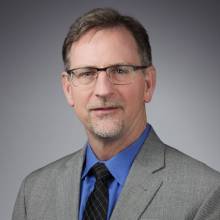
Riverside Research, a not-for-profit scientific research organization and presenting sponsor at this year’s WashingtonExec STEM Symposium, is hosting a mini open innovation center for hands-on emerging technology demonstrations.
The 2019 K-12 STEM Symposium is March 30 at the Nysmith School for the Gifted in Herndon, Virginia. Riverside Research’s mini-OIC will let young students talk one-on-one with scientists and engineers, and experience STEM technologies first-hand.
The hands-on demonstrations will be on artificial intelligence, machine learning, radar engineering, optics and plasma physics, according to the organization.
Students will be able to dance some moves to learn how AI systems track and recognize movement, and trace digits in the air to watch how machine learning algorithms process video to display the number drawn.
Radar engineers will also bring a working radar to demonstrate how waves are used to track an object’s position and speed, and students will be able to move in front of the radar to see how it works.
The optics demo will allow students to use a laser to deliver a message from a miniature model of earth to a satellite in space and back again to show optical communications. And the plasma physics demo will allow students to experiment with a disconnected fluorescent lamp to learn about electromagnetics within an electric field generated by a small plasma globe.
“The future of our nation relies on the students who are in school today,” says Riverside Research president and CEO Steve Omick. “For both our company and our nation, it’s so important to nurture curiosity in STEM education at a young age.”
Riverside Research operates a series of laboratories called the Open Innovation Center, where researchers perform applied research in the areas listed above. The organization recognized these labs are a model for how STEM education translates to careers that ultimately support national interest and created the mini-OIC to educate students on real-world applications of what they’re learning in school.
The mini-OIC is also supported by two nonprofits; the U.S. Geospatial Intelligence Foundation and CyberPatriot. USGIF is facilitating an activity where students can build their own satellite, and CyberPatriot has a series of cyber activities so students can earn a cyber hero cape.
The STEM Symposium is one of the National Capital Region’s largest STEM events and is open to all and free to attend. The event will feature astronauts, engineers and educators as speakers, over 20 exhibitors and activities to engage children, parents and teachers.
For more information, visit STEMsymposium.com.

